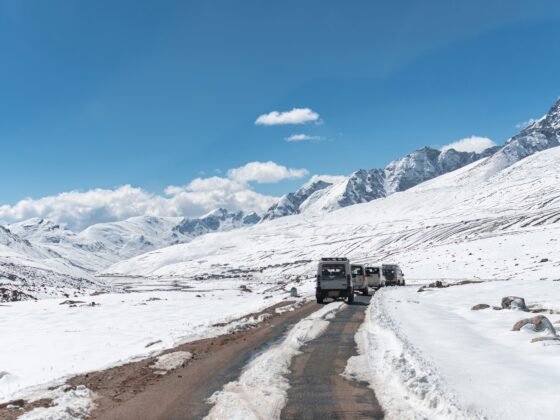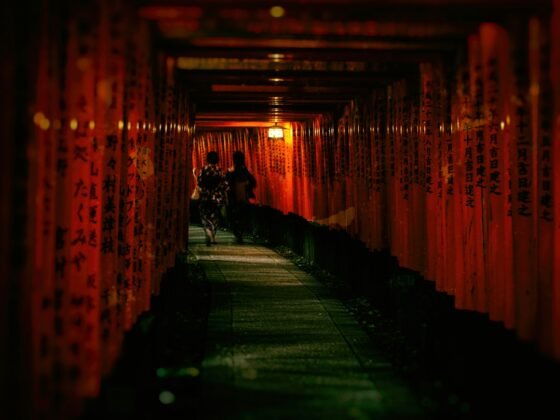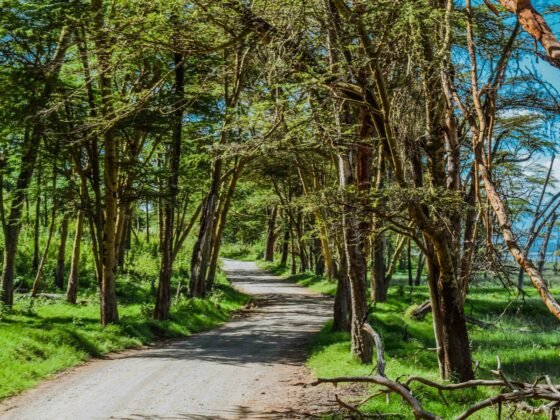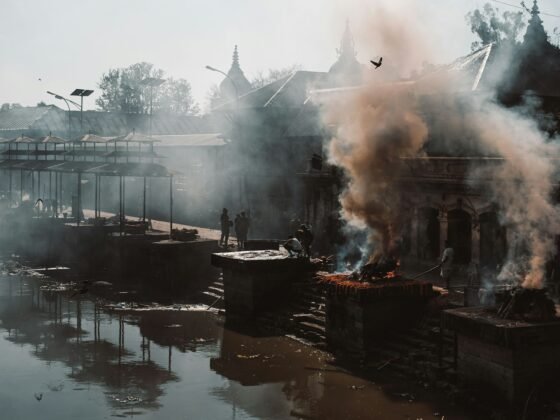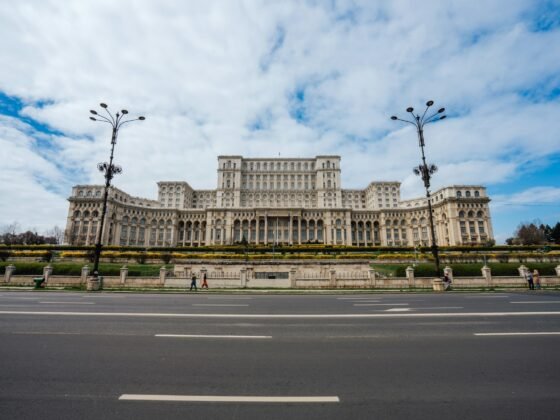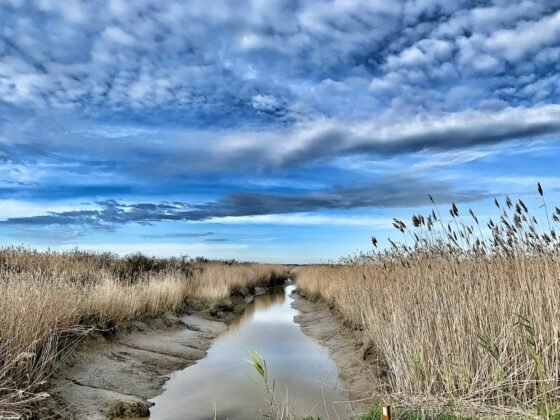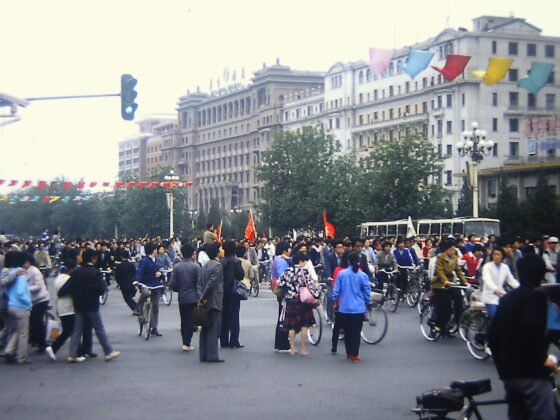by Joanna Griffin
Longlisted for the PureTravel Writing Competition 2023.
I wouldn’t reach my destination that morning, that ugly mall of yellow concrete and smoked glass, a pinnacle of western-style shopping in this rapidly developing city where flashy new buildings towered over tin and wooden shanties. I was on my way to buy shoes—not the impractical, high-heeled variety, they wouldn’t do on the stony tracks and rutted pavements of the north. These were flat, but soft and pretty, in muted shades of pink and beige leather, a small nod to fashion in my usual world of grubby whites and tatty linen.
Of course, I hadn’t known as I set out that morning, that I wouldn’t arrive. Nor had I even suspected it as I’d stepped out onto the streets of Haya Hulet— ‘Twenty Two’— the Addis Ababa neighbourhood of quiet tracks where stone bungalows sat in their leafy compounds behind iron gates. The morning was still bright and the sun casting its shadows on the cracked pavements and lighting the ragged faces of the beggars on the main road.
‘Samoyawi’ the Ethiopians would say, teaching me the Amharic word for the colour blue. ‘Like the sky’. This might have been true for seven or eight of Ethiopia’s thirteen months, but was an overly optimistic description in this, Kremt, the season of long rains which stretched miserably across the summer. I wondered why the word for brown was not ‘like the mud’- the swirling mires of Kremt that clogged our footwear, crept uncomfortably up the legs of our trousers and plastered the floors of our homes. And why wasn’t the word for red ‘like the dust’- that which swirled in the afternoon winds of the north and ran out of my hair in rusty rivulets as I showered each night each night?
Weaving through the schoolchildren and barrow-wheeling vendors to catch my first bus, I could see a haze already beginning to form, a thin film that would soon become a curtain of steely grey, drawn stubbornly across the blue. Already I was beginning to mourn the loss of the day’s warmth which within the hour would be gone.
Here in the city, the minibuses were cleaner and more ordered than their more rural counterparts where passengers would cram into every inch of space and the sickly sour smell of their thick cotton shawls would intensify in the heat of the overloaded buses. Passengers would greet their neighbours with shrieks and kisses, chuckling at the inelegant passage of the unlucky straggler who was forced to clamber the length of the bus to the seat in the back corner which nobody wanted.
Here in Addis Ababa it was different, and I revelled in the space, fragrant with perfumed workers wearing the international poker faces of capital city commuters. Granted, it was less interesting without the Kalashnikov-wielding farmers with whom I would hold good-natured ‘stare-offs’, and the wide-eyed babies who were pushed onto my lap whilst their mothers struggled aboard. Here I was largely ignored which, today, was just fine by me. ‘Interest’ sometimes felt overrated, and I was soon to learn just how much.
As I waited at the lights on the corner of Menelik Avenue, I half-watched the faithful climbing the steps of the Estifanos Church with its colourful bunting streaming from its large cupola, but my mind was on the six-laned mayhem of Meskel Square ahead, and how I was going to cross it to catch my next bus to the mall. I reached the other side more by luck than judgement and a bus immediately pulled up alongside me.
‘Yet y’hedsh k naw?’
‘Where are you going?’
The young woyena who called out the stops and collected the faresthrust his head through the window of the main door and beckoned me on. I pulled myself up into the only empty seat, the coveted and usually occupied seat in the front, and turned to pass a handful of santimes back to him but he waved them away. Perhaps he wanted me to pay later.
We were rattling up the Bole Road at some speed when the door to my right flew open, exposing me to a sudden blast of cool air as the asphalt and kerbside litter rushed away below.
‘Grab the handle’, someone called to me as panic ensued, and the passenger who was wedged between me and the driver reached his thin arm across me to pull the door closed. I held it towards me, but despite my best efforts it flew open again. The man next to me was leaning in hard, a passenger from the back was beginning to crowd me from behind and the driver was yelling at me aggressively to pull the door closed. Couldn’t he see that I was trying? At the same moment the woyena tapped me on the shoulder demanding the coins he’d waved away only moments before, adding to my confusion.
It was in that moment that I saw it, something that explained my unease and caused my heart to thud and my breath to catch in my throat. As I reached once more to grab the door, I caught a glimpse of the woyena in the wing mirror. His hand was reaching out through his window and as quickly as I was pulling the door closed, he was pulling it open again from the outside. In a moment of clarity I understood. I was being robbed. As I felt the man next to me closing in further, I elbowed him with the fullest force I could manage, sending him reeling into the driver and the bus veering slightly towards the centre of the road. My left hand closed tightly around my cheap bag of coloured patchwork, the zip of which was long broken and the lining fraying at the edges.
‘Woraj!’
I called for the bus to stop, panicking a little, wondering why the passengers behind were not helping me. Perhaps they hadn’t noticed what was happening at the front of the bus or perhaps, unlike the countryside where everyone busied themselves kindly in the minutiae of everyone else’s business, here in the city they were reluctant to intervene, particularly when they might themselves get hurt. Hurt? My mind turned fleetingly to how this might end before the bus swung suddenly across the road in a violent U- turn before stopping abruptly outside a garage.
I was pushed out onto the pavement and my handful of coins thrown after me, clattering on the ground and spinning to a halt in the rain which had now begun to fall. As the bus sped into the darkening day I glanced at the passengers who’d allowed this to happen. Each of them kept their eyes fixed firmly ahead like automatons until the bus was a blur in the distance and at once I understood why they hadn’t helped.
‘Be careful, you’ve just been robbed.’ I looked up to find a youth hovering over me with concern. Reaching into my bag, I located my purse and other belongings.
‘No it’s OK’ I replied. ‘Everything is still there’. I was relieved, unsure what had just happened but left with the sense I’d had a lucky escape, and the kind stranger shrugged and walked away.
Moving to sit on a nearby wall, I pulled out my purse—its zip was also broken—to find that the thieves had been cleverer than I might have imagined. Everything was still there—some British money, some personal documents, even my bank cards—but every single Ethiopian Birr, all two- thousand of them that I’d taken out of the bank to buy my shoes, had been taken.
In my misery, I cursed myself for my stupidity and my lack of care in boarding a bus when all the signs had been there. Yet, at the same time, I marvelled at the light fingers and clever trickery of this gang. As another passer-by stopped to help me with the characteristic kindness I’d come to know so well, I knew I wouldn’t make it to the mall that day, or any day for the next few months for that matter. I’d carry on wearing my grubby whites and tatty linen and the shoes would have to wait for another trip to the city when I might just be brave enough to negotiate the buses again.
Photo by Diana Yohannes on Unsplash




